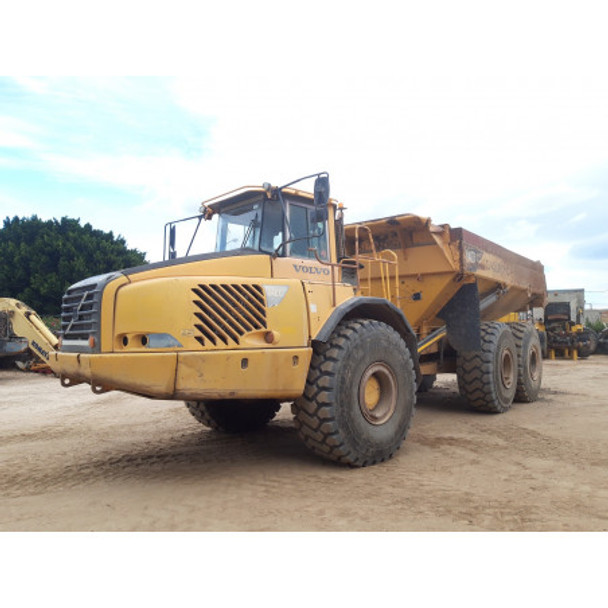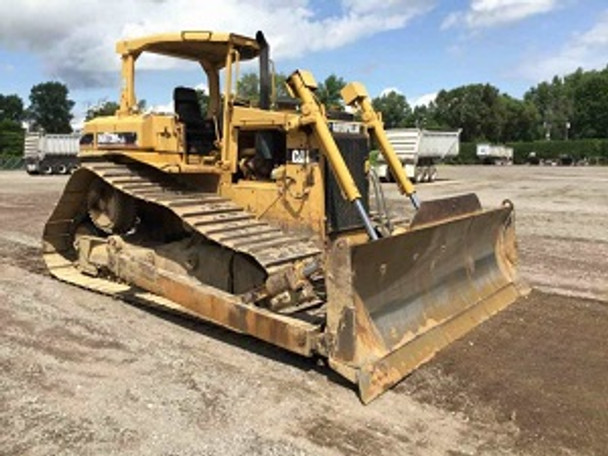Sustainable Mining Practices in Nigeria: Eco-Friendly Equipment for Reduced Environmental Impact
Introduction
Mining plays a crucial role in Nigeria’s economy, providing valuable minerals and raw materials that drive industries and contribute significantly to the nation's GDP. The country is rich in a variety of resources such as limestone, coal, tin, and gold, making mining one of the key economic activities. However, traditional mining methods have historically posed significant environmental challenges, including soil erosion, deforestation, water pollution, and biodiversity loss.
As global awareness about climate change and environmental sustainability increases, there is an urgent need for the Nigerian mining sector to adopt sustainable practices. These eco-friendly approaches not only reduce the environmental footprint of mining activities but also improve operational efficiency, social responsibility, and long-term profitability. With modern technology, mining companies in Nigeria can now employ equipment that minimizes environmental impact while maximizing output.
Ingco Headlamp - HHL013AAA2
The Environmental Impact of Traditional Mining in Nigeria
Nigeria has long struggled with the environmental consequences of its mining activities, many of which were carried out with little regard for the long-term damage they would cause. Some of the significant negative environmental impacts of traditional mining methods include:
- Soil Degradation: Open-pit mining, surface mining, and quarrying often lead to the destruction of fertile topsoil, which impacts agricultural productivity. The resulting soil erosion also contributes to the degradation of large areas of land that may take decades to recover.
- Water Pollution: Mining operations frequently lead to water pollution, as toxic chemicals such as mercury, cyanide, and heavy metals seep into rivers and groundwater. This contamination not only harms aquatic life but also endangers the health of communities dependent on these water sources for drinking, fishing, and irrigation.
- Air Pollution: Dust and particulate matter released during blasting and drilling activities degrade air quality. Additionally, traditional diesel-powered mining equipment emits high levels of greenhouse gases (GHGs), contributing to global warming.
- Deforestation and Biodiversity Loss: To access mineral deposits, mining companies often clear large areas of forests, resulting in habitat destruction. This deforestation, coupled with land clearing for infrastructure, leads to a significant loss of biodiversity and the disruption of ecosystems.
- Impact on Local Communities: Mining activities can have profound effects on nearby communities, including health hazards from polluted air and water, displacement, and loss of livelihood due to environmental degradation.
Principles of Sustainable Mining Practices
Sustainable mining involves balancing the extraction of valuable minerals with the preservation of the environment and the welfare of communities. It is grounded in three core principles:
- Environmental Responsibility: Sustainable mining prioritizes minimizing waste, reducing pollution, and protecting natural ecosystems. Practices such as reforestation, land rehabilitation, and biodiversity conservation are crucial to restoring the environment after mining activities.
- Resource Efficiency: Efficient use of resources like water and energy is key in sustainable mining. Innovations that lower the consumption of fuel, reduce emissions, and increase the longevity of equipment help reduce the carbon footprint of mining operations.
- Social Responsibility: Sustainable mining also takes into account the health and safety of workers and the communities surrounding mining sites. This involves creating safe working conditions, ensuring fair labor practices, and supporting community development initiatives.
INGCO Safety Helmet HSH10
Eco-Friendly Mining Equipment for Sustainable Practices
The adoption of eco-friendly mining equipment can significantly reduce the environmental impact of mining operations in Nigeria. Below are some key technologies that are transforming the industry:
- Solar-Powered Mining Equipment: Traditional mining relies heavily on fossil fuels, which contribute to carbon emissions. By using solar-powered equipment like solar drills and solar-powered conveyor belts, mining companies can reduce their dependence on diesel and other fossil fuels. Solar energy is both renewable and cost-effective in the long run, especially in sunny regions like Nigeria.
- Electric and Hybrid Mining Vehicles: Another key area of innovation is the shift from diesel-powered mining vehicles to electric or hybrid alternatives. Electric trucks, excavators, and loaders have lower emissions, which reduces air pollution and the carbon footprint of mining sites. These vehicles also generate less noise, improving working conditions in and around mining operations.
- Water-Efficient Technologies: Mining operations can be extremely water-intensive, leading to water shortages in surrounding areas. By using water-efficient equipment such as closed-loop water recycling systems, mining companies can minimize their impact on local water supplies. These systems enable the reuse of water in processing, thereby reducing both consumption and pollution.
- Dust Suppression Equipment: Air pollution from dust can be a significant problem in mining areas, but there are technologies designed to control and suppress dust. Mist cannons, dust control additives, and other dust suppression systems help limit the spread of particulate matter into the air, improving air quality and reducing health risks for workers and nearby communities.
Successful Implementation of Sustainable Mining in Nigeria
Some mining companies in Nigeria have already begun to implement sustainable practices, incorporating eco-friendly equipment into their operations. These pioneers are setting an example for the rest of the industry by demonstrating that sustainability and profitability can go hand in hand. For instance, a few companies have integrated solar-powered mining equipment, drastically reducing their carbon emissions, while others have invested in water-efficient technologies that allow them to process minerals without harming local water sources.
These case studies show that with the right investments in green technology, it is possible to mine responsibly, protect the environment, and contribute to the local economy. Government partnerships and regulatory incentives have also played a significant role in encouraging more mining companies to adopt sustainable practices.
Volvo A40D articulated dump truck 6X6 year 2007
Challenges to Sustainable Mining in Nigeria
While the benefits of sustainable mining are clear, the transition to more eco-friendly practices is not without challenges. Many mining operations, particularly smaller-scale ones, face several obstacles:
- High Initial Costs of Eco-Friendly Equipment: Sustainable mining technologies, such as solar-powered machinery, electric vehicles, and advanced water recycling systems, often come with higher upfront costs. Many smaller mining companies in Nigeria lack the capital to invest in these solutions, even though they offer long-term savings through reduced operational costs and environmental impact.
- Lack of Technical Knowledge and Expertise: Many miners, particularly in artisanal and small-scale mining (ASM), may not be aware of the latest eco-friendly technologies or how to operate them. Training and capacity-building programs are needed to bridge this knowledge gap and ensure that workers understand how to use new equipment safely and efficiently.
- Regulatory and Policy Gaps: Although Nigeria has some environmental laws and regulations governing the mining sector, enforcement is often weak. In some cases, mining companies continue to operate with little oversight, leading to environmental degradation. Stronger regulatory frameworks, coupled with incentives for sustainable practices, are needed to push the industry towards greener methods.
Recommendations for Promoting Sustainable Mining
To foster the growth of sustainable mining practices in Nigeria, concerted efforts are required from all stakeholders, including the government, mining companies, and civil society. The following strategies can help promote the adoption of eco-friendly mining equipment and sustainable practices:
- Government Initiatives and Policy Reforms: The Nigerian government can play a crucial role by strengthening regulations that mandate environmentally responsible mining practices. Offering tax breaks, grants, and subsidies for companies that invest in green technology will encourage the adoption of sustainable equipment. Additionally, enforcing existing environmental laws more strictly will ensure that mining companies comply with eco-friendly standards.
- Partnerships and Investments: Collaboration between local mining companies, international organizations, and technology providers is vital to scaling sustainable practices. Foreign investments and partnerships with eco-friendly equipment manufacturers can provide Nigerian companies with access to cutting-edge green technologies, reducing the barriers to entry for smaller firms.
- Capacity Building and Education: Providing miners with training on how to use eco-friendly equipment and adopt sustainable methods is essential. Workshops, certification programs, and community-based initiatives can help transfer knowledge about best practices in sustainable mining. This will enable companies to integrate green technologies into their operations more effectively and safely.
Case Studies: Successful Implementation of Sustainable Mining in Nigeria
Several mining companies in Nigeria are leading the way in adopting sustainable practices. For example, a prominent mining firm recently transitioned to solar-powered equipment across its operations, reducing its carbon emissions by over 50%. This shift not only lowered operational costs but also earned the company recognition for environmental stewardship, attracting more foreign investments.
Additionally, a smaller-scale mining company implemented advanced water recycling technologies, allowing it to significantly reduce water usage while processing minerals. This initiative not only conserved a precious resource in a water-scarce region but also helped the company comply with international environmental standards, making its products more attractive in global markets.
These examples illustrate the benefits of sustainable mining practices in terms of cost savings, environmental impact reduction, and improved market access. With continued investment in eco-friendly equipment, more companies in Nigeria can achieve similar success.
Caterpillar Bulldozer CATERPILLAR D6H LGP
Frequently Asked Questions (FAQs)
What is sustainable mining, and why is it important?
- Sustainable mining focuses on extracting minerals while minimizing environmental harm, conserving natural resources, and promoting social welfare. It ensures that mining can continue without depleting resources or damaging the ecosystem.
What are some examples of eco-friendly mining equipment?
- Examples include solar-powered drills, electric mining vehicles, water recycling systems, and dust suppression equipment. These technologies reduce energy consumption, emissions, and water waste, contributing to more sustainable operations.
What challenges do mining companies face in adopting sustainable practices?
- High initial costs, lack of technical expertise, and weak regulatory enforcement are common challenges. However, government incentives, partnerships, and training programs can help overcome these obstacles.
How can sustainable mining benefit local communities?
- Sustainable mining practices reduce environmental damage, improve air and water quality, and create healthier working conditions. They also help preserve local ecosystems, ensuring that communities can continue to benefit from natural resources in the future.
Are there government policies supporting sustainable mining in Nigeria?
- Yes, the Nigerian government has introduced environmental regulations for the mining sector. However, stronger enforcement and incentives for adopting eco-friendly technologies are needed to accelerate the transition to sustainable mining.
Related Article
Enugu's Coal Mining Industry: Safety Equipment and Sustainable Practices
Jos Plateau's Solid Mineral Sector: Equipment Needs for Extraction and Processing
Conclusion
The future of mining in Nigeria lies in the adoption of sustainable practices and eco-friendly equipment. By investing in green technologies, companies can not only protect the environment but also enhance their operational efficiency and profitability.
For mining companies looking to make this transition, GZ Industrial Supplies offers a wide range of eco-friendly mining equipment designed to reduce environmental impact and improve performance. Explore our extensive selection and take the first step toward a sustainable future today. Visit GZ Industrial Supplies for more information on how you can modernize your mining operations with cutting-edge, sustainable solutions.












